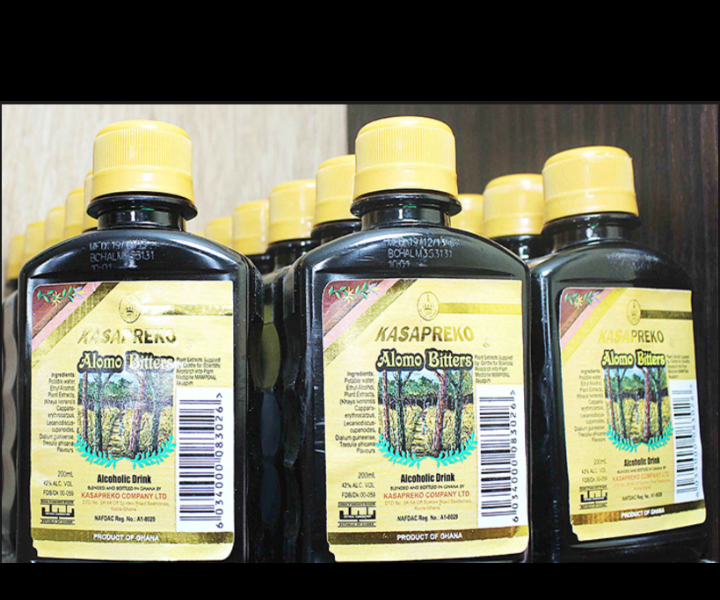MediaConsortium has once again beamed it searchlight on the proliferation of alcoholic bitters in the country. The trio of Amechi Obiakpu of Espi News, Godwin Anyebe of Consumerassembly and Adetunji Faleye of Brand Impact take a deep look into the possible consequences of excessive intake of the bitters brand among Nigerians, especially the youth. Excerpt…
The acceptance of alcoholic bitters in Nigeria has given rise to the proliferation of different brands in Nigeria’s beverage industry. Since the first brand entered the market, over a decade ago, it has led to the influx of various other brands with many of them holding to claims of potency and natural herbs as part of their make-up.
Presently, the beverage market is awash with different bitters brands too numerous to mention so much so that it is almost impossible for any day to pass by without a new entrant into the market. And worst still, they come in names that are suggestive of what they are for.
For example, there is the Alomo Bitters, Okpa-eyin, Kpakurumo, Skelewu, Man-power, adonko bitters, yoyo bitters, baby oku, (hot baby), jakpata, ( “tear pant”) jikelumo, (” horse power”) mkpuru mmiri ( blue ice), Odogu bitters among several others.
In fact, checks by MediaConsortium revealed that the brands within the market seem to be divided into two segments. While one seems to cater for the elitist in the society, the other serves the less educated who take solace in the consumption without recourse to the side effect, especially as they are easily accessible.
While this is arguable, one fact that is not in doubt is that the avalanche of brands are targeted at the middle-aged man and the heaviest drinker in Nigeria, Africa’s most populous nation.
In fact, many people attribute this worrying trend to the change in lifestyle, economic situation and the pocket-friendliness of many of the brands which have all conspired to secure a place for the bitters market in Nigeria, coupled with the belief that bitters contain body purifiers, anti-malaria components, and ingredients that strengthen the virility of men.
No doubt, the proliferation of alcoholic bitters and its increasing consumption is viewed to be a major public health concern in Nigeria. Many of these drinks are illicitly distilled in obscure locations and some manufacturers claim the ‘bitter’ ingredient is a secret recipe. Due to consumers’ belief about its therapeutic effects, there is a tendency toward excessive consumption and a resultant increase in health risk.
In some cases, it leads to unprotected sex among youths thereby increasing unwanted pregnancies and sexually transmitted diseases. The continuous and unguided consumption of this friendly and subtle killer thus contributes to increase in the mortality and morbidity rate, homelessness and joblessness among many Nigerians.
Interestingly, in a report published in vanguard newspapers on February 17th, 2016, Mr Stephen Laiko, the then Bauchi State Coordinator, NAFDAC, said most bitter herbal drinks were dangerous to human health, adding that, such drinks were not supplements or drugs that should be consumed as the bitter tastes could cause havoc to consumers.
Laiko advised people to abstain from excessive consumption of bitter drinks to avoid medical disorders, noting that, NAFDAC had tested some of the bitter drinks and provided them with registration numbers, having been found to be less harmful.
“Bitter drinks are not drugs or supplements; if you must drink, it is advisable to consume those with NAFDAC numbers because they had been tested and found not to contain intoxicants,” he said.
Also, several medical practitioners have warned that consumption of alcoholic herbal bitters without observing moderation will in the long run leave some devastating effects on the body.
For instance, Dr. Obomon Taiwo, an ophthalmologist said, “Professionally, it is unhealthy to consume such especially as it’s not prescribed and controlled.”
“In the long run, there’s an accumulation of unwanted and unhealthy substances in the body that can cause an overloading of the liver leading to liver problems amidst other health issues,” she noted.
While reacting to the claims of potency associated with the bitters brands, she observed that some may actually have ingredients with such potential, however, it’s not advisable as it’s neither prescribed nor in controlled portions.
She blamed the economy for the high acceptance rate of the alcoholic beverage drink generally, even as she said that the average Nigerian knows that it’s unhealthy and should get to the hospital if the need be.
“However, the cost of medical care scares them off, leaving them at the mercy of such products. The other challenge is ignorance. A lot of people also do not know how harmful these products are. They get immediate relief and satisfaction but long-term negative effects,” she posited.
Most worrisome is the level at which the youth demographic consumes alcoholic bitters in Nigeria. It’s worthy of note that, youths are not the leaders of tomorrow, they are in more ways than one, the tomorrow we can see. Invariably, therefore, whatever happens to our youths, actually tampers with our tomorrow.
In Nigeria, the world’s most populous black nation, more than half of the young people are involved in the consumption of these bitters, either of which is uncensored, uncertified and unclean. These drinks, which purport to enhance sexual prowess or libido do not pass through the crucible of approval of government agencies, tasked with regulating such intakes. They are sold in very small but effective quantities and such aphrodisiacs could contain just anything.
Sadly, nobody has bothered to investigate the health implications of the continued use of such alcoholic bitters. The government regulatory agencies seem to be overwhelmed by the sheer pervasiveness of this malaise. Their recent tokenism of banning the ones sold in sachets is actually unenforceable and laughable.
Not too long ago, the Borno State governor, whose background is the academia, had to declare a kind of emergency in the health sector, when he realised that so many young people in the state, were coming down with kidney problems. Setting up a kidney Specialist Hospital was a wise decision but we must go further to interrogate why so many young people are experiencing such malaise: intake of aphrodisiacs.
This is actually a worrying situation that the health sector must take a lead to combat.









